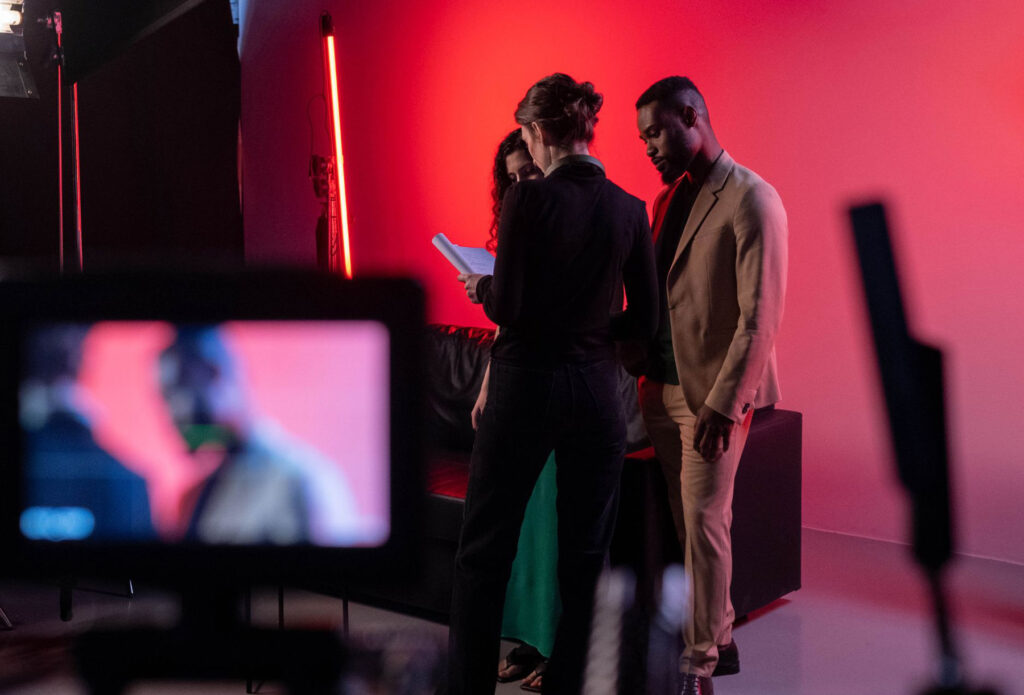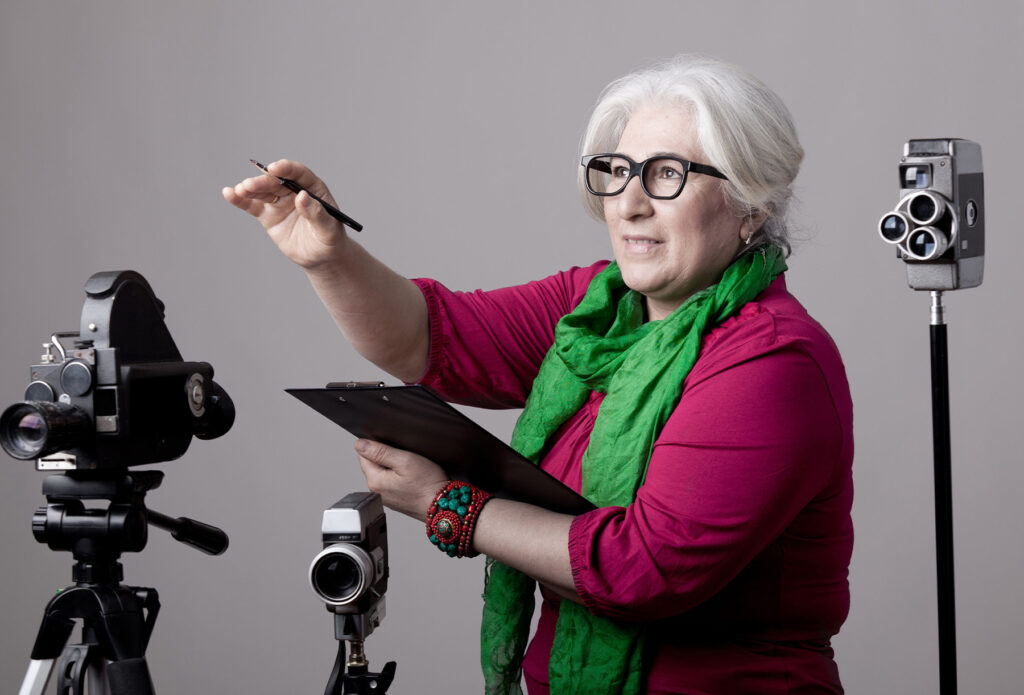In the evolving landscape of film, television, and theatre, the role of the intimacy coordinator has become increasingly crucial. This position, which gained prominence after the #MeToo movement and following HBO’s pioneering adoption in 2018, focuses on the safety and well-being of actors during intimate scenes.
But what exactly does an intimacy coordinator do, and how can they enhance your performance as an actor?

What is an Intimacy Coordinator?
An intimacy coordinator is a trained professional who ensures that intimate scenes are performed safely and respectfully. They do this without compromising the director’s vision or the actor’s comfort. Their role covers not only scenes of a sexual nature but also any interaction that involves significant physical closeness or emotional vulnerability.
The Scope of Intimacy
Chloe Dallimore, an esteemed stage and screen icon, defines intimacy broadly: “Intimacy is anything that happens within that arm’s breadth distance.” This definition expands the role of intimacy coordinators beyond managing explicit content. It includes any form of close physical or emotional interaction, whether a conversation laden with emotional intimacy, a parent-child hug, or more traditional romantic scenes.
Key Responsibilities of an Intimacy Coordinator
The primary duties of an intimacy coordinator mirror those of a choreographer or fight director. They ensure that all movements and interactions are safe, consented to, and well-rehearsed. Their typical tasks include:

Preparation and Planning: Intimacy coordinators work closely with directors and actors from the early stages of production to understand and plan how intimate scenes fit within the narrative.
Communication: They facilitate open discussions about boundaries and consent between all parties involved. This ensures everyone understands what will happen during these scenes and feels comfortable with the planned actions.


Choreography: Similar to fight scenes, intimate scenes are carefully choreographed. This ensures actions are safe, repeatable, and effectively convey the story. This approach helps maintain professionalism and comfort.

On-Set Advocacy: During filming or rehearsals, intimacy coordinators monitor the environment to maintain the agreed-upon boundaries and ensure the actors’ well-being.
The Impact on Performance
Intimacy coordinators play a crucial role in enhancing performance by creating a safe space for actors to explore vulnerable dimensions of their characters. By removing the anxiety associated with physical and emotional exposure, actors can focus more on delivering authentic and impactful performances.
Addressing Misconceptions
There is a misconception that the involvement of an intimacy coordinator might stifle spontaneity in performance. However, the reality is quite the opposite. Like choreographed fight scenes, structured intimacy allows actors to engage with their roles without fear of unpredictability fully. This structure supports actors in delivering more nuanced and truthful performances.
When No Intimacy Coordinator is Present
If you find yourself on a set without an intimacy coordinator, it is vital to take proactive steps to ensure safety and clarity. Discuss boundaries and scene details with your director and fellow actors. Establish explicit consent for all actions, and do not hesitate to involve your agent or a third party if the production fails to respect agreed boundaries.
Pursuing a Role as an Intimacy Coordinator
For actors interested in expanding their professional scope, becoming an intimacy coordinator offers a unique opportunity to leverage their understanding of performance and actor safety.
Training programs and workshops are available to equip prospective coordinators with the necessary skills. Even for those not seeking a career change, understanding the protocols and techniques of intimacy coordination can be immensely beneficial.

Conclusion
The role of the intimacy coordinator is not just a response to industry scandals but a progressive step towards more respectful, safe, and authentic storytelling. Their work ensures that intimacy in performance respects the dignity of actors while enhancing the emotional depth and realism of the scene. As the industry continues to evolve, the importance of this role is increasingly recognised, making it an integral part of modern filmmaking and theatre production.






